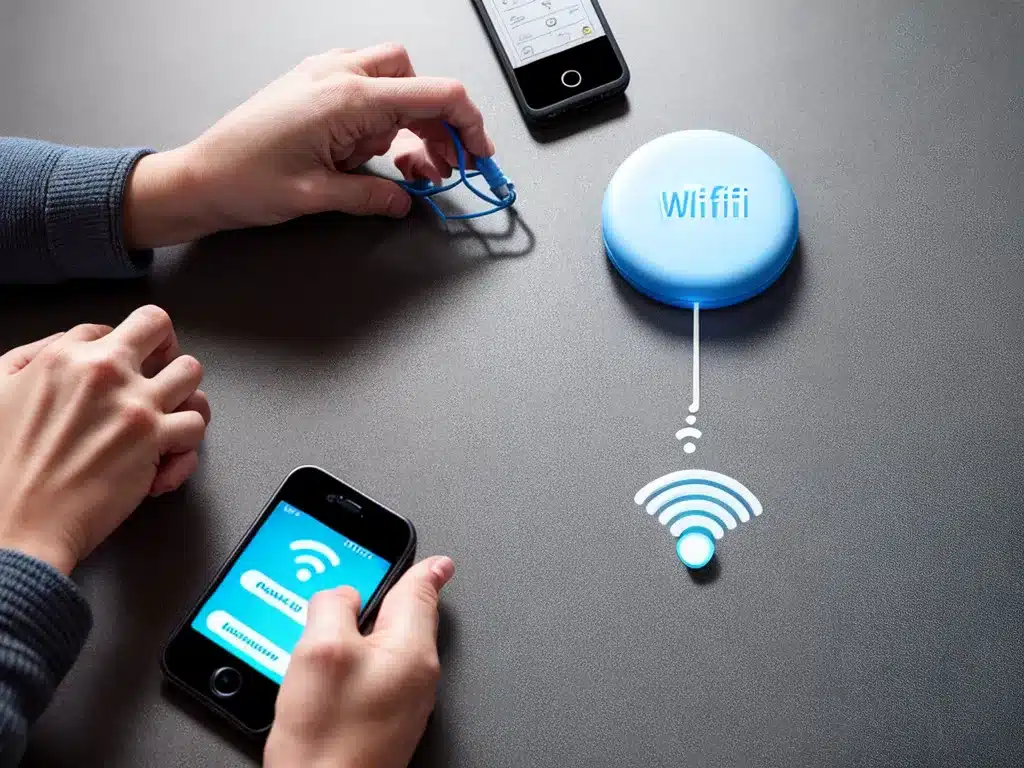
Having a strong and reliable WiFi connection at home is extremely important in today’s connected world. However, we all face WiFi issues from time to time that can be very frustrating. In this comprehensive guide, I will provide tips for diagnosing and solving the most common WiFi connectivity problems.
Checking Your WiFi Router
The first thing to check when experiencing WiFi issues is your wireless router itself. Here are some steps to take:
Reboot the Router
Simply unplugging the router’s power cable for 30 seconds and plugging it back in can help reset the device and connections. This resets the router hardware and often fixes minor software glitches.
Check for Firmware Updates
Router manufacturers periodically release firmware updates to improve performance and fix bugs. Check the router admin interface or manufacturer’s website for the latest firmware and install any available updates. This keeps the router up-to-date.
Verify Router Placement
The location of your wireless router matters. For best WiFi coverage, place it in a central area elevated off the floor. Avoid jamming the router in a corner or cabinet. Also, keep the router away from other electronics that could cause interference.
Check Router Settings
Log into your router admin interface and verify the settings. Double check that the wireless mode, channel, encryption type, and SSID/password are configured properly. Adjust settings if needed.
Troubleshooting Connected Devices
Issues with your connected smartphones, computers, and other devices can also cause WiFi headaches. Here are some device checks to perform:
Disable and Re-enable Wireless Adapter
Toggle your computer’s or phone’s WiFi off and back on. This resets the wireless connection and often fixes flaky connections.
Power Cycle the Device
Completely power down computers and phones and restart them. This clears any glitches and ensures a fresh WiFi connection.
Update Network Adapters Drivers
Outdated network adapter drivers can cause WiFi problems. Download and install the latest drivers for your wireless adapters. Keeping these up-to-date optimizes connectivity.
Forget and Rejoin the Network
On phones and computers, forget the saved WiFi network profile then reconnect and re-enter the password. This clears any settings issues that may be interfering.
Check for Antenna Problems
Loose or damaged antenna connections on laptops and phones can severely degrade WiFi performance. Inspect antenna cables and connectors to ensure they are securely attached.
Improving Your WiFi Environment
There are also some changes you can make to your home’s WiFi environment to improve the overall connection quality:
Adjust WiFi Channel Settings
Nearby networks on the same WiFi channel can cause interference. Log into your router and switch to a less crowded channel. Channels 1, 6, and 11 are generally the best options.
Upgrade to a Dual-Band Router
Investing in a router that supports both 2.4Ghz and 5Ghz bands gives you more options for connecting devices with less interference. Set devices that support 5Ghz to that band for performance boost.
Optimize Router Antenna Placement
Take advantage of routers with adjustable external antennas. Experiment by pointing antennas in different directions to find the best coverage for your environment. Proper antenna positioning improves WiFi range.
Check for Signal Interference
Microwave ovens, baby monitors, Bluetooth devices, and more can interfere with WiFi signals on the 2.4Ghz band. Try to keep these electronics far from your router if possible.
Calling in a Professional
If you continue having WiFi connectivity problems after trying these self-troubleshooting steps, don’t hesitate to call in a professional. A qualified technician can analyze your wireless network and identify any underlying issues that need to be resolved. Investing in a professional WiFi site survey and optimization can resolve difficult wireless problems. Don’t struggle with persistent WiFi headaches – get expert help to finally fix the issue.
By methodically working through these router, device, environmental, and expert assistance tips, you can get to the bottom of pesky WiFi problems. Paying attention to the smallest connectivity details will get your home wireless network working its best. Reliable wireless connectivity improves life quality in this connected world.












